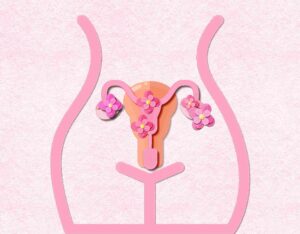For individuals with Polycystic Ovary Syndrome (PCOS), the path to conception can be filled with unique challenges. PCOS, a common hormonal disorder, can affect fertility and make achieving pregnancy more complex. Fortunately, advancements in medical science offer a range of medications that can assist those with PCOS in their quest to conceive. In this comprehensive guide, we will explore the best medicine to get pregnant with PCOS to enhance fertility, shedding light on the options available and empowering you with knowledge on your journey to becoming a parent.
Contents
Should I Consider Medicine To Get Pregnant With PCOS?
 Deciding whether to consider medication to enhance fertility when dealing with Polycystic Ovary Syndrome (PCOS) is a personal choice. However, if you’re trying to conceive and have been diagnosed with PCOS, medication may be an option to improve your chances of getting pregnant. Here are some factors to consider when making this decision:
Deciding whether to consider medication to enhance fertility when dealing with Polycystic Ovary Syndrome (PCOS) is a personal choice. However, if you’re trying to conceive and have been diagnosed with PCOS, medication may be an option to improve your chances of getting pregnant. Here are some factors to consider when making this decision:
- Severity of PCOS Symptoms: The severity of PCOS symptoms can vary among individuals. If PCOS is significantly affecting your menstrual cycles, ovulation, or other aspects of fertility, medication may be considered to address these issues.
- Lifestyle Modifications: Before turning to medication, healthcare providers often recommend lifestyle modifications, such as changes in diet, exercise, and stress management. This can positively impact fertility in some cases.
- Patient Preferences: It’s crucial to communicate your preferences and concerns with your healthcare provider. Discuss your comfort level with medication, potential side effects, and your overall approach to family planning.
- Potential Risks and Benefits: Understanding the potential risks and benefits of fertility medications is crucial. Your healthcare provider will discuss the likelihood of success, possible side effects, and any associated risks with you.
- Timing and Patience: Fertility treatment often requires time and patience. It’s essential to set realistic expectations and be prepared for potential delays on the road to conception.
Overall, whether to consider medication for getting pregnant with PCOS depends on various factors specific to your situation. Open communication with your healthcare provider and a collaborative approach to decision-making will help you make informed choices that align with your goals and preferences.
What Is The Best Medicine To Get Pregnant With PCOS?
The choice of medication to enhance fertility for individuals with Polycystic Ovary Syndrome (PCOS) depends on various factors, including the specific fertility challenges you face, your overall health, and your preferences. Here are some common and best medicines to get pregnant with PCOS that healthcare providers may prescribe:
Clomiphene Citrate (Clomid)
Clomiphene citrate, commonly known as Clomid, is a widely used oral medication in the treatment of infertility associated with PCOS. It acts by blocking estrogen receptors in the hypothalamus, prompting an increase in follicle-stimulating hormone (FSH) and luteinizing hormone (LH). This stimulation encourages the ovaries to produce mature eggs, facilitating ovulation. Clomid is often considered a first-line treatment, particularly for women with irregular or absent ovulation. Regular monitoring during Clomid treatment, including ultrasound scans, helps assess follicular development and determine the optimal time for conception.
Letrozole (Femara)
 Letrozole is an alternative oral medication that has gained popularity in treating infertility related to PCOS. It belongs to a class of drugs called aromatase inhibitors, which reduce estrogen levels by inhibiting its production. By doing so, Letrozole promotes the release of FSH, stimulating the growth of ovarian follicles and enhancing ovulation. Letrozole is considered in cases where Clomid may not be effective or is associated with side effects. It is often preferred due to its lower risk of thinning the uterine lining and a potentially lower risk of multiple pregnancies compared to Clomid.
Letrozole is an alternative oral medication that has gained popularity in treating infertility related to PCOS. It belongs to a class of drugs called aromatase inhibitors, which reduce estrogen levels by inhibiting its production. By doing so, Letrozole promotes the release of FSH, stimulating the growth of ovarian follicles and enhancing ovulation. Letrozole is considered in cases where Clomid may not be effective or is associated with side effects. It is often preferred due to its lower risk of thinning the uterine lining and a potentially lower risk of multiple pregnancies compared to Clomid.
Metformin
Metformin, an insulin-sensitizing medication, is commonly prescribed to manage insulin resistance in individuals with PCOS. While not a direct ovulation-inducing drug, Metformin can regulate menstrual cycles, improve ovulation, and reduce the risk of miscarriage. It is often used in combination with other fertility medications, such as Clomid or Letrozole, to enhance their effectiveness. Additionally, Metformin may be recommended for women with PCOS who have insulin resistance, as addressing this aspect of the condition can positively impact fertility.
Gonadotropins (Injectable Hormones)
Injectable gonadotropins, including follicle-stimulating hormone (FSH) and luteinizing hormone (LH), are administered via injections to stimulate the ovaries directly. This method is often employed when oral medications like Clomid or Letrozole are ineffective or unsuitable. Gonadotropins induce the development of multiple ovarian follicles, increasing the chances of successful ovulation. However, close monitoring is essential to prevent complications such as ovarian hyperstimulation syndrome (OHSS) and to adjust medication dosages accordingly.
In Vitro Fertilization (IVF)
In vitro fertilization (IVF) is a more advanced fertility treatment that may be recommended when other methods prove unsuccessful. During IVF, eggs are retrieved from the ovaries, fertilized with sperm in a laboratory, and the resulting embryos are transferred back into the uterus. Medications, including gonadotropins, are used in controlled ovarian stimulation to encourage the development of multiple eggs. IVF is a comprehensive approach suitable for severe cases of infertility or when other treatments are not viable. It offers a higher success rate but involves a more invasive process and a greater financial commitment.
It’s important to note that the choice of medication and treatment plan should be personalized based on your specific circumstances. Consult with a fertility specialist or reproductive endocrinologist who can evaluate your situation, conduct necessary tests, and recommend the most appropriate course of action to enhance your chances of getting pregnant with PCOS.
What Is The Easiest Way To Get Pregnant With PCOS?
 Getting pregnant with PCOS can present challenges, but there are several lifestyle changes and strategies that may improve your chances of conceiving. It’s important to note that individual responses to these approaches vary, and consulting with a healthcare professional is crucial for personalized guidance. Here are some general recommendations:
Getting pregnant with PCOS can present challenges, but there are several lifestyle changes and strategies that may improve your chances of conceiving. It’s important to note that individual responses to these approaches vary, and consulting with a healthcare professional is crucial for personalized guidance. Here are some general recommendations:
Balanced Diet
Focus on a diet rich in nutrients, emphasizing whole foods such as fruits, vegetables, lean proteins, and whole grains. Consider a diet with a low glycemic index to help manage insulin levels, which is particularly important for individuals with PCOS and insulin resistance.
Regular Exercise
Regular physical activity is essential for overall health and can contribute to weight management. Exercise helps improve insulin sensitivity, regulate menstrual cycles, and reduce the severity of PCOS symptoms. Aim for at least 150 minutes of moderate-intensity exercise per week, such as brisk walking, cycling, or swimming.
Weight Management
Achieving and maintaining a healthy weight is a key factor in managing PCOS-related fertility issues. Even a modest weight loss of 5-10% of body weight can significantly improve ovulation and increase the likelihood of conception. A healthcare provider or a registered dietitian can help create a tailored weight management plan that suits your individual needs.
Monitor Ovulation
Knowing when you ovulate is crucial for maximizing your chances of conception. Ovulation predictor kits, fertility tracking apps, and monitoring basal body temperature can help you identify your fertile window. Having regular, timed intercourse during this period increases the likelihood of sperm meeting the egg.
Consider Fertility-Friendly Supplements
- Inositol: Inositol, particularly myo-inositol and D-chiro-inositol, is a supplement that may improve insulin sensitivity and ovarian function in individuals with PCOS. Consult with your healthcare provider before adding inositol to your regimen.
- Omega-3 Fatty Acids: Found in fish oil and certain seeds, omega-3 fatty acids have anti-inflammatory properties and may support overall reproductive health. Including sources of omega-3 in your diet or considering supplements under the guidance of a healthcare provider may be beneficial.
Address Underlying Health Issues
PCOS is often associated with other health conditions that can impact fertility. Regular check-ups with a healthcare provider help identify and manage these conditions. For example, thyroid disorders or diabetes may require specific treatments to optimize fertility.
Reduce Stress
Chronic stress can disrupt hormonal balance and negatively impact fertility. Incorporate stress-reducing activities into your routine, such as meditation, yoga, deep breathing exercises, or hobbies that bring you joy. Finding a balance between work and relaxation is crucial for reproductive health.
Remember that these strategies are general recommendations, and the effectiveness of each approach can vary from person to person. Seeking guidance from a healthcare professional, preferably a reproductive endocrinologist or fertility specialist, is crucial for developing a personalized fertility plan based on your unique circumstances and needs.
Conclusion
In conclusion, navigating the path to the best medicine to get pregnant with PCOS requires patience, commitment, and dedication. In addition, it demands regular check-ups and lifestyle adjustments. Maintaining a balanced diet, staying physically active, and managing stress are key lifestyle factors that can positively influence fertility. Understanding and tracking ovulation, along with considering fertility-friendly supplements, contribute to increasing the chances of conception.
Regular consultations with healthcare providers for monitoring and adjustments are essential for a personalized and effective fertility journey. Remember, every individual’s experience is unique, and seeking professional guidance is paramount for a successful and fulfilling path to parenthood with PCOS. If you are facing menopause-related issues, menopause treatment at HerMantra can help. Book your free trial online menopause treatment session now.


